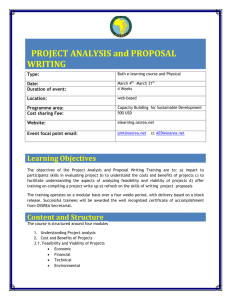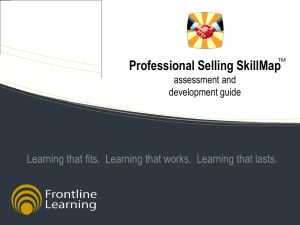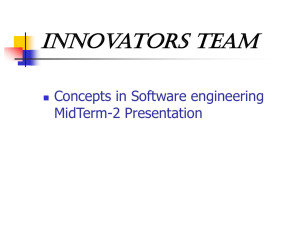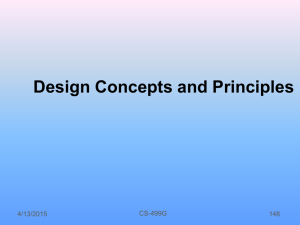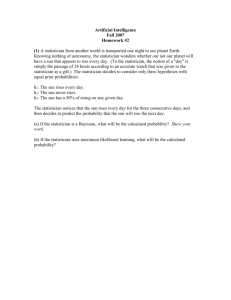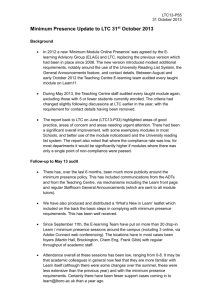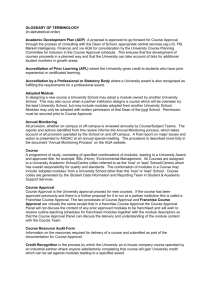How to develop an Educational Module
advertisement
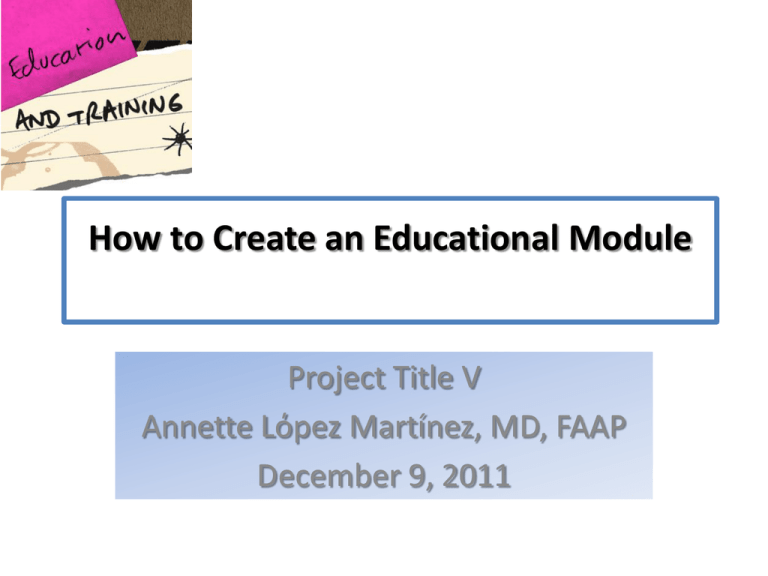
How to Create an Educational Module Project Title V Annette Lόpez Martínez, MD, FAAP December 9, 2011 Introduction • This workshop will help train health care professionals as effective problem solvers in order to access and apply medical knowledge base • To motivate health care professionals to become self-directed, life-long learners Rationale For the Workshop • As medical education constantly changes, it is important to develop educational strategies that will help health care professionals from learning a practical and timeless approach to module development Target Audience • For those who are responsible for the educational experience of students • It should be helpful for those trying to develop techniques that will help others to incorporate knowledge through technology Objectives Participants will understand the components and definitions of educational modules Participants will briefly list the steps in curriculum development and apply it to develop a module Participants will learn the team members needed to develop a module Participants will be able to evaluate a well developed electronic module Educational Modules • An educational unit that covers a single subject or topic • It improves the students’ chances to master a subject • A well-planed module teaches ideas in a logical order Merriam-Webster's Collegiate Dictionary Advantages of Educational Modules • It encourages the professor or mentor to be creative • Ensures that all students are measured by the same reasonable standards • Can be completed as a solitary experience or assisted by a facilitator • Students can complete it a their own pace, reviewing any difficult topic The Components • Start with clear learning objectives • Sound structure with user-friendly materials • Break down the content into a topic framework to provide a logical order • Include a wide range of formats to target different learning styles • Use models, diagrams and case studies to bring your learning material to life • Give references: additional reading, websites, videos What is e-learning? • Electronic (e-learning) is digitally delivered content using the internet, CD-ROM, or online video conferencing • Computer based modules allows students to gain access to consistent education and training, with content from experts in the field Why Choose An Electronic Educational module? • Demanding faculty appointment can limit the time mentors have to teach • Electronic based modules can serve as an alternative to traditional lecture based teaching • Creates the ability to train students with minimal time investment from the faculty E-learning Research supports the effectiveness of elearning and participants are more often choosing online learning for future continuing professional education (CPE). An evaluative case study of online learning for healthcare professionals. J Contin Educ Nurs, 2006. 37(5): p. 225-32. Kern, Thomas, Hughes (2009). Curriculum Development for Medical Education. Baltimore: The John Hopkins University Press How to Develop an Educational Module? Delivering the module Implementing the module Establishing committee Measuring outcomes Establishing a Committee Content Expert or Faculty Member • Person responsible for the basic structure of the module Education Technician • Gets the information from the expert and transforms it into an easy-to-read material Education Specialist • Designs the objectives of the module Statistician • Identifies methods and procedures to measure the outcome. Analyzes and interprets data. Pilot Group • Preliminary resource in testing the module before final version is completed. Committee Members Content Experts Education Technician Education Specialist Statistician Pilot Group (PMP students) Implementing the Module How it will be delivered? Time to complete the module Supervised Sessions? Collect data Reports from the statistician Evaluation • CD • Print version • Computer • Hrs • Days • Help of a facilitator • Solitary experience • Once a month • Mid cycle • Trimestral • For credits • Any reward • Review pilot group, make changes The Last Stages • Delivering the Module – Start “LIVE” with the entire completed and revised version of the module • Measuring the Outcome – Decide on how often you will be analyzing data – Discuss with the Statistician the progress and results – At the end of the year discuss with the committee any advisable changes needed for the new course Congratulations! You are ready to start your project… • In my experience it can take 4-6 months depending on resources and team work to have your product ready to be implemented PRSYM Keynote Speaker June 3, 2011 E-Learning Innovations and Pediatric Rheumatology Taunton R. Southwood, MD,FRCP Use of facilitated electronic learning to educate residents about common pediatric rheumatologic conditions • Facilitator guided • 2 x 1hr sessions, 40 residents • Pre-post evaluation • Knowledge evaluation: 38% pre, 93% post • Increased clinical comfort • No change in career choice Annette Lopez-Martinez et al Jill Segerman Cincinnati Children’s Hospital MC 2011 Questions?
